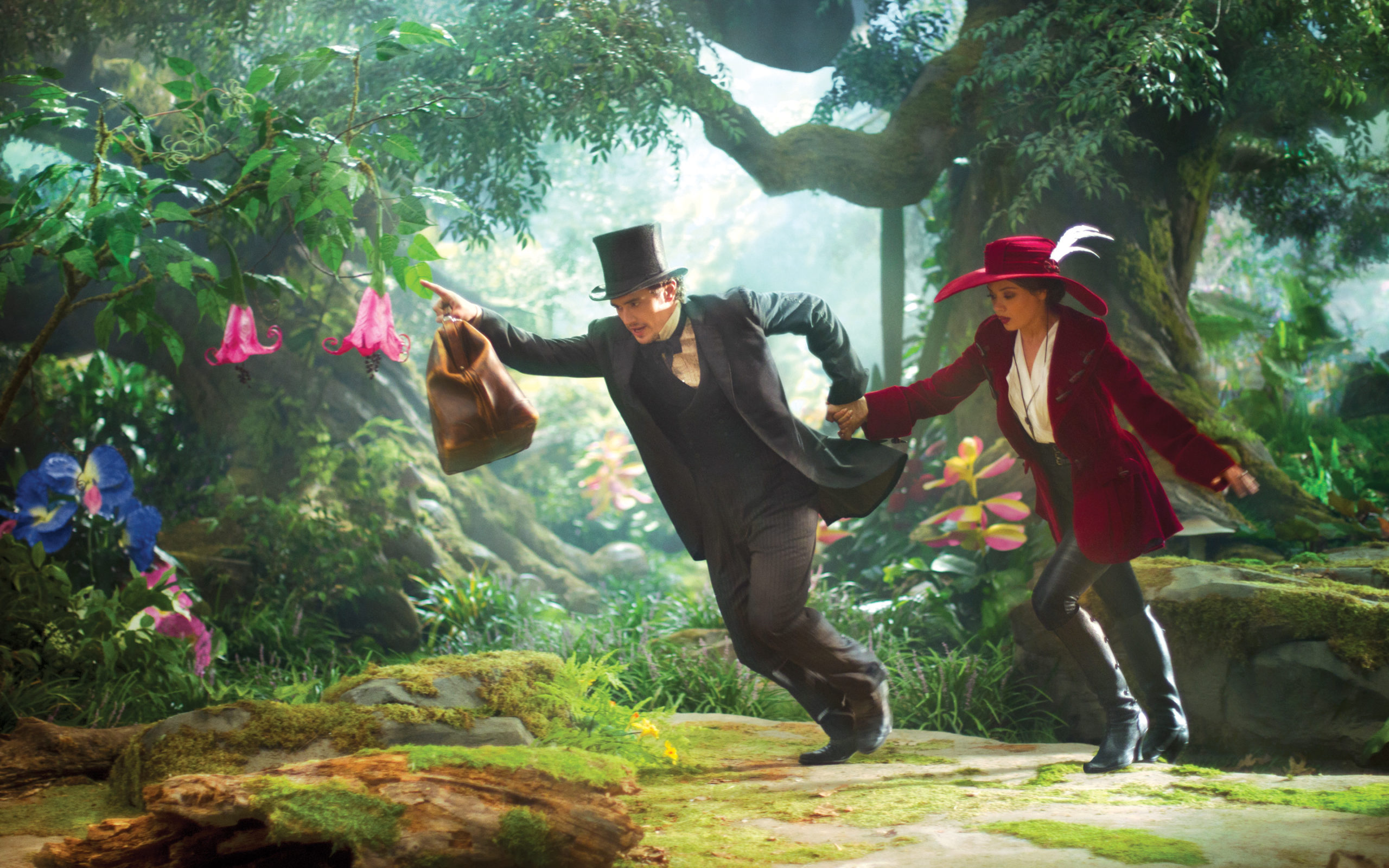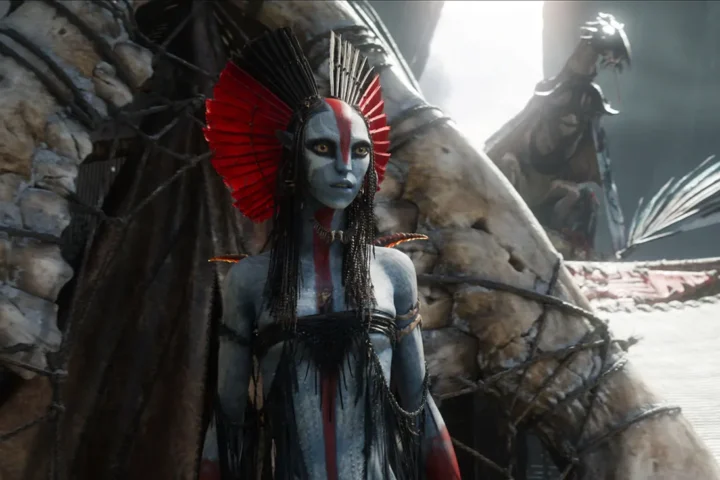The bombastic CGI spectacle Oz: The Great and Powerful, directed by Sam Raimi and starring James Franco as a two-bit Kansas magician circa 1905 who becomes an unlikely wizard, is a let-down, a movie so consumed by technology that its spirit gets crushed. A prequel to Victor Fleming’s beloved 1939 The Wizard of Oz, the sweetest of classics and a simple movie about a wide-eyed country girl who came to appreciate her small-town home, Oz: The Great and Powerful eschews any such simplicity of character and theme for special effects bought with a purported $320 million budget.
It’s especially disappointing in that Raimi—the great pop artiste director whose pictures (Evil Dead, Darkman, Spiderman) superbly blend carnivalesque comedy and thrills with whiz-bang technique and real vision—gives us a sublimely funny and lovely opening twenty minutes, shot in full-frame, sepia-glory, featuring an inspired Franco as self-avowed charlatan Oscar Diggs, who, as he tells potential love Michelle Williams, wants to be a great man, rather than just a good one. These scenes, including the cyclone that spirits him away, are gorgeously shot and on the mark both comedically and tonally.
It’s when the dust settles and he lands in the enchanted new land that the movie goes dreadfully awry—the image opens up into widescreen, the colors pop, the 3-D effects take over and it’s all down hill from there—and it’s a lot of downhill given the 130 minute running time, 110 of which take place in this candy colored, synthetic world.
And what a world it is, one of menacing forests, flying monkeys, poppy fields and sidekicks (sound familiar?) that include bellhop clad monkey Finley (Zach Braff) and China Girl (Joey King), a porcelain doll who has lost her family. These two motormouths reminded me of Star Wars’ Jar Jar Binks, quickly wearing out their welcomes and a world away from Bert Lahr, Ray Bolger and Jack Haley.
And then there’s comely Theodora, played by a too-modern and sophisticated Mila Kunis, a sensual, blowsy young witch who is supposed to be a good girl, mind you, and who falls instantly in love with Oscar, whom she’s convinced is the legendary wizard that must return to the Emerald City and reclaim his throne, setting the citizens “free” from the reign of her sister, a bad witch named Evanora, played with relish by the consummate Rachel Weisz.
But vixenish Evanora ain’t about to go quietly. After promising Oscar gold and riches, she hatches a plot to send him on a wild goose chase to find the supposedly evil witch, who then turns out to be the kind one, Glinda, played by Michelle Williams as goodness personified (a specialty for the actress, whose My Week with Marilyn was a performance of great empathy) in an underwritten role which largely wastes her gifts.
It goes without saying that the pair, along with the cloying Finley and China Girl in tow, team up to take back the city from Evanora. But things get complicated when kind Theodora, who has fallen in love with Oscar and now feels rebuffed by his attraction to Glinda, is duped by Evanora into embracing her dark side. Before long she’s literally green with envy and cackling at the top of her lungs, and our famous wicked witch is born, the incarnate of unrequited love. Cue flying monkeys.
Predictably, this all leads to a massively scaled showdown above the Emerald City completely with hurling fireballs, explosions, clouds of smoke, large-scale projections (somewhat niftily used in the coda between Oz and Glinda), lots of shrieking, a broomstick, a few munchkins and rudimentary action set-pieces that will excite 7-year-olds everywhere (or at least those less Playstation savvy) but will be tedious to everyone else.
The cast is uniformly acceptable with Franco as the standout, clearly having a ball with his wily, fish-out-of-water character, always letting us see that he is never taking the hijinks too seriously. The only weak link is a miscast, top-billed actress Kunis as a character that should have been sweet as sweet, then black as night. The actress, effective in Ted and even more so in Black Swan, never loses the voice of a California girl and never finds the character’s envious, wicked heart.
As a result, Theodora’s transition feels written, not felt, and the star is upstaged by both Williams and Weisz, nuanced actresses par excellence. Kunis isn’t quite in their league—yet. One can’t help but wonder what Williams, sympathetic as she is, might have done with the role’s dark, emerald shades.
As did the original, the film somewhat cleverly weaves in characters from the opening 1905 sequence into the fairytale (which doesn’t turn out to be a dream this time around), but it all feels perfunctory, overly tidy and never alive, buckling under the weight of the CGI.
Oz: The Great and Powerful is hollow and contrived, a waste of a good cast and unworthy successor to an all-time classic. It’s not terrible, just routine.
2 stars.




Nice review Lee. While it likely won’t impress fans that are very much in love with the original classic, it does pay gentle homage to its predecessor while embarking on its own unique tale.